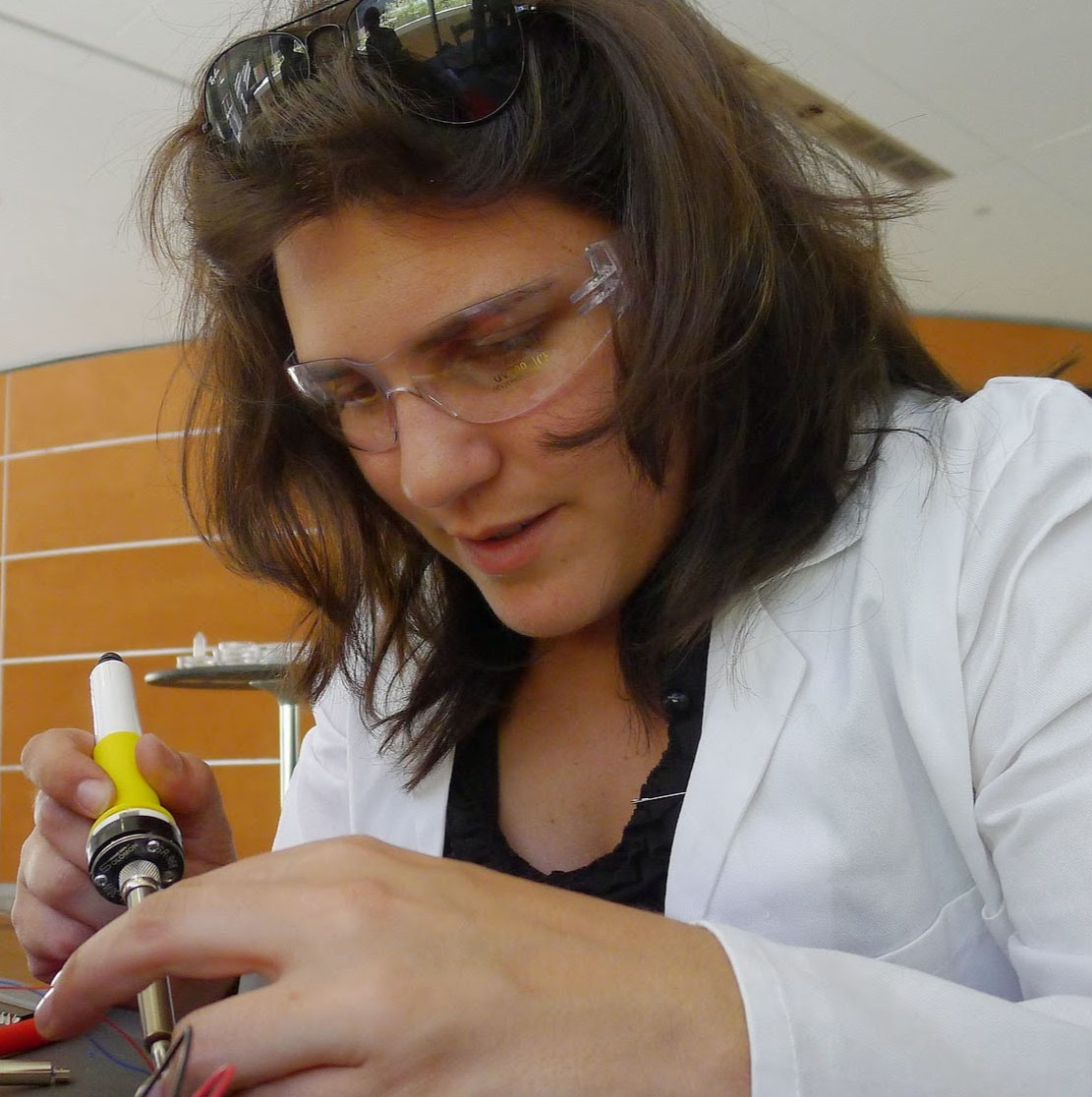
Co-Founder
Dr. Aisen Caro Chacin holds a BFA in Sculpture from the University of Houston (UH), an MFA in Design and Technology from Parsons in NYC, and a Ph.D. in Human Informatics from the University of Tsukuba, Japan.
Her work lies within the intersecting fields of art, science, and technology, focusing on the design and development of human-computer interfaces, medical devices, and Assistive Device Art. Her research delves into sensory substitution, human-echolocation, haptics, modeling bronchoscopes, emergency ventilation equipment, sample tracking, materializing patient data for surgical procedures, and adaptive fashion.
Currently, she is a medical device designer and developer at the University of Texas Medical Branch, an Adjunct Professor of New Media Art at UH, and chairs LASER Houston, a series of art and science talks sponsored by Leonardo, IAST and Transart Foundation for Art and Anthropology.
Her work has been presented and exhibited at Ars Electronica, Cite du Design, TEI, NIME, NYC Museum of Art and Design, The New York Hall of Science, Contemporary Arts Museum Houston, among others. She has been featured as an inventor in Future Tech by Discovery Channel, Creative Applications, FastCo, Time Techland, Engadget, NYTimes, and was awarded and published by PopSci.

Co-Founder
Dr. Christopher Zahner is a clinical pathologist in the Department of Pathology at the University of Texas Medical Branch (UTMB). Prior to medical school (Texas Tech Health Sciences Center) and residency (UTMB), he was a mechanical engineer (BS Mechanical Engineering from the University of Florida) for the National Aeronautics and Space Administration (NASA) supporting the International Space Station (ISS) as an Operations Support Officer (OSO) and Mission Evaluation Room Life Support and Integration (MERLIN) officer.
Dr. Zahner’s basic science research is focused on medical devices and resulted in hardware development, grants, and patents in the fields of microbial growth, balance, acoustics, and sample processing, along with prototype hardware in ventilation, sample tracking, and hand hygiene.
Dr. Zahner’s clinical responsibilities include the medical directorship of Coagulation and Point-of-Care testing. His clinical research is focused on the reduction of diagnostic errors using the Diagnostic Management Team (DMT) and serves as the DMT coordinator. The DMT consists of a group of experts who meet frequently to focus on the correct selection of laboratory tests and the interpretation of complex test results in a specific clinical field for the purposes of improving patient diagnosis.
Pressure Cuff Emergency Ventilator
Appropriating parts from the medical supply closet
The Pressure Cuff Emergency Ventilator was created at the UTMB MakerHealth space is a fabrication lab where nurses, doctors, and any hospital staff can prototype medical devices at the University of Texas Medical Branch in Galveston, TX.
There is an urgent need for ventilators during the COVID-2019 crisis. In response to this call for action, we created an emergency ventilator prototype that can be replicated by appropriating medical supplies from the closets located in each unit of the hospital. This design allows for medical staff to improvise care should the need arise for more ventilators than are available. The design consists of a blood pressure cuff that is actuated by the medical air and vacuum ports located in each patient room in the hospital. The air inflates the cuff, squeezing an Ambu bag, and the vacuum quickly releases the air, reinflating the bag. This mechanism is controlled by an Arduino UNO, an H-bridge, and two electro-mechanical valves. Our current design uses valves that can be found inside simulation robots that we had at the hospital; however, we are also experimenting with car vapor valves and other solenoid valves that are readily available. This way the valves can be sourced from any car-parts box store or hardware store, with the thought that they are universally available, and extremely reliable, since cars are made to operate for long periods of time. While most of the parts can be found in the medical supply closet, the idea is that any hospital can partner with a maker space/ engineering team in the community to create the microcontroller portion easily and the hospital staff can improvise the medical supply portion of the device.
An important consideration for improvising medical devices is that non-FDA-approved devices will not be safe for patient use. Patient safety is a top priority, so to mitigate this problem, we are creating a study to be approved by our Internal Review Board (IRB). The IRB of a hospital can serve as a surrogate for the FDA to permit the use of a device for clinical studies. This is done by an Investigational Device Exemption (IDE) after a panel of medical experts reviews the safety, invasiveness, and protocol. Once a study is approved, it can be conducted as a multi-institutional endeavor, where other hospitals can enroll and participate. This would allow the use of this new method for emergency patient ventilation with partner hospitals across the US and the world. Once a device has been approved for an IDE, non-substantial changes can be made to the device such as software updates and any other change that does not affect its invasiveness. This will allow for other partner institutions and engineers to upgrade the initial prototype and make it more robust as the study is in effect.
How much does it cost?
When will it be ready?
How many can we make?
How reliable is the system?
What measurements will indicate proper ventilation?
Priorities
Pre-existing Patient Room Requirements
Network Support
ATTN: Medical & Engineering Volunteers :
Houston, TX, US
Email: aczlabs@gmail.com